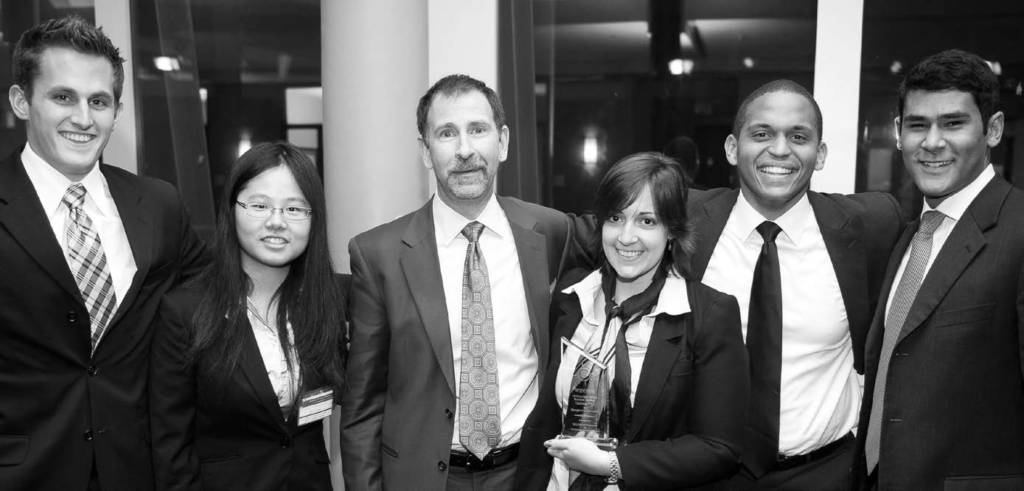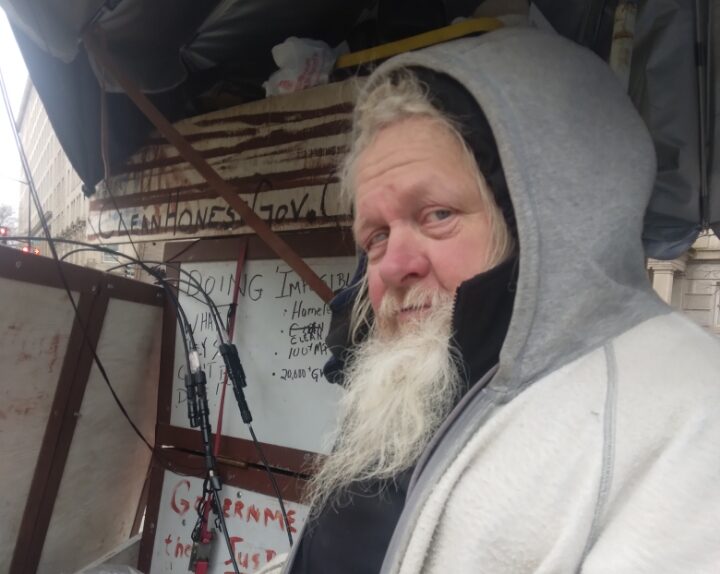Business students from around the country descended on Georgetown University on Saturday, Feb. 18 to present proposals on ways to improve Street Sense financially and operationally.
The students were participating in the annual Hilltop Consultants Business Strategy Challenge hosted by the Georgetown University McDonough School of Business, which invites under-graduate students to study a different client nonprofit organization each year and provide analysis as well as potential opportunities for improvement. For this year’s competition, Street Sense was selected as the client organization.
Teams of three to four students arrived in Washington D.C. early on Thursday morning from as far away as China and Ireland. Upon arrival, the teams were presented with the case study which included a description of the Street Sense business model, complete financial records, and the policies and protocols of the organization. Teams were also allowed to glean information from a question-and-answer session with Brian Carome, Executive Director of Street Sense.
Once they had all of the information in hand and were settled into their living quarters, the competitors were given Thursday and Friday to study the case of Street Sense and to do whatever other research they deemed appropriate. The teams were expected to produce a complete analysis of the strengths and weaknesses of the organization. They were also required to produce a formal presentation on the steps Street Sense should take in the future to put itself on more secure financial footings.
In developing their proposals, the teams were encouraged to be creative and innovative, but were reminded to keep in mind the position of Street Sense as not only a business model but also as a service
organization dedicated to providing aid to people experiencing homelessness and poverty in
Washington D.C. While the teams were required to completely analyze the financial operations
with an eye towards increasing revenue and cutting costs where neces- sary, they were also required
to keep in mind how any changes they might pro- pose could potentially impact the core missions of
the organization.
After 36 hours of exhaustive, and exhausting, research and planning, the groups awoke early on Saturday morning to make their presentations to the panels of judges whose task was to determine which group had come up with the best plans for improving Street Sense in the short and long term future. The judges—who came from major business leaders and nonprofits in the area such as KPMG, Deloitte and the United Way among others—listened to 10-minute proposals from each group of students.
Following the proposals, the judges grilled the presenters on their plan, making sure the students had thought about every little detail such as how the plan might impact the nonprofit status of the organization or how the organization might have to change their organizational structure to accommodate the plan. During one of the presentations, the judges went so far as to in- quire whether the students had polled city council members to determine the likelihood that a piece of legislation on which that groups plan depended would actually be passed by the council.
“These are all things that need to be considered when you are putting together a business plan
for an organization,” the judge informed the student.
“If the law doesn’t pass, then your plan is dead on arrival. Where would the organization be if
they were to take your advice and find out that the law didn’t go through?”
Following the morning presentations, the scores of the judges were tallied and finalists were selected from the morning groupings. The teams from Florida State University, the University of Michigan, McGill University and Washington University of Saint Louis were invited to present their ideas to a panel of all of the judges, the client organization and all of the other teams. In the end, the presentation by Florida State University was selected narrowly over the proposal from McGill University.
The winning proposal from the Seminoles called for Street Sense to redesign its website to allow for more personal information about the vendors online and for strategic partnerships with other service partners who could help to shoulder some of the burden for the diverse missions of the organization as a service provider. Both of these strategies are already in the works at Street Sense and should be fully implemented soon.
This is the 8th year for the Business Strategy Challenge, which was originally put together by the Hilltop Consultants in 2005 to expose undergraduate business students interested in business planning and consulting to the real world challenges of developing solutions. As this year’s client organization, Street Sense took part in judging the event and received dozens of highly creative business proposals which have been analyzed by college professors, business students, as well as other business professionals.
“This competition has given us the ability to get consulting and ideas which our organization could never afford to pay for,” said Brian Carome in his remarks to the students at the awards banquet. “Your (the students) ideas will be used to make us better.”







